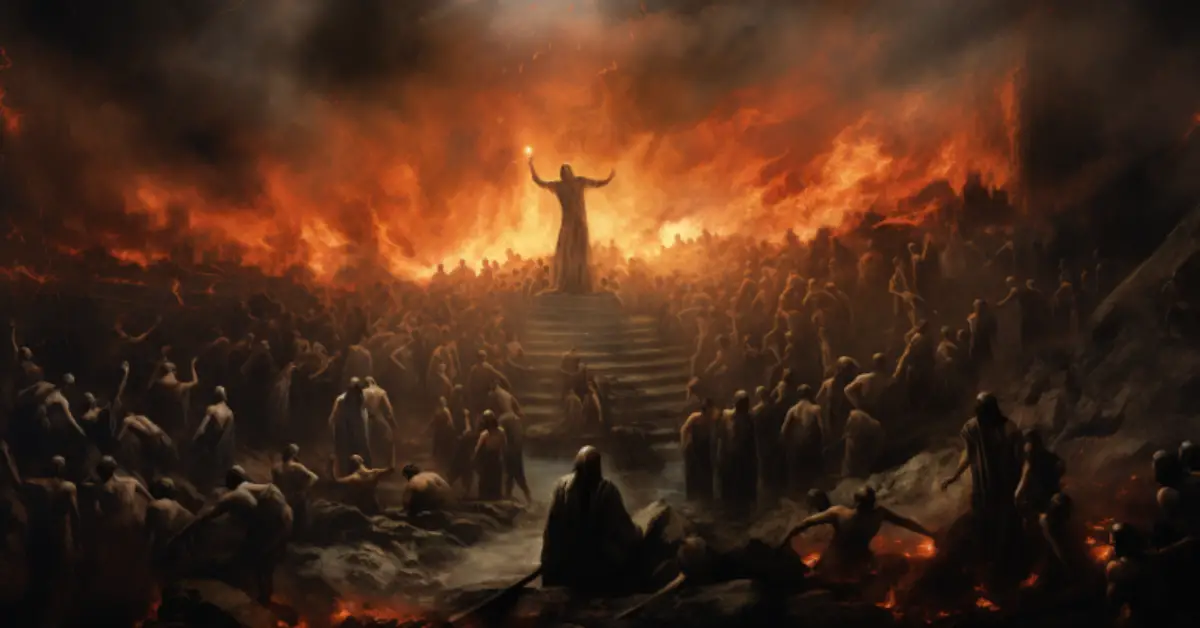At its core, the Bible doesn’t explicitly mention “purgatory.” Many Christians believe in a purgatory based on interpretations of certain scripture, but it’s not a term you’ll find in the Bible. The concept is more about the purification of sins before entering Heaven, seen by some as a process rather than a specific place. It’s essential to differentiate between denominational beliefs and what the Bible directly states.
Looking for more depth on this topic? You won’t want to miss the next sections.
What Does the Bible Say About Purgatory?
While the word “purgatory” is not in the Bible, the idea stems from a desire to understand how God handles sin and the state of souls after death. The New Testament gives various indications about the afterlife, and there’s a belief that Jesus’ sacrifice cleanses us from sin. But how does this purification process work?
Many Christians believe in a sort of “in-between” state where souls undergo purification. This belief emerges from verses hinting at a purification process and the prayers for the dead in early Christian practices.
In the Bible, especially the New Testament, the primary focus is on God’s grace through Jesus and the idea that faith in Him brings salvation. The direct relationship between sin, salvation, and the afterlife is complex. One might ask, “If Jesus died for our sins, why would there be a need for purification in an intermediate state?” While it’s crucial to understand that the sacrifice of Jesus on the cross was complete and all-encompassing, some believe that individual purification helps the soul align fully with God’s view before entering Heaven.
However, the Bible doesn’t provide explicit details on this “in-between” state or process. Different denominations have various beliefs, and not all agree on the existence of purgatory. Some view it as a doctrine allowed by the church to provide hope and understanding, while others see it as non-biblical.
Bible Verses About Purgatory
- 2 Maccabees 12:44-45 – While not in the Protestant Bible, this book in the Catholic Bible mentions prayers for the dead, suggesting an intermediate state: “For if he were not expecting that those who had fallen would rise again, it would have been superfluous and foolish to pray for the dead.”
- 1 Corinthians 3:13-15 – This verse hints at purification through fire, a concept some associate with purgatory: “Each one’s work will become clear; for the Day will declare it, because it will be revealed by fire; and the fire will test each one’s work, of what sort it is. If anyone’s work which he has built on it endures, he will receive a reward. If anyone’s work is burned, he will suffer loss; but he himself will be saved, yet so as through fire.”
- Matthew 5:26 – Jesus mentions a temporary prison from which one won’t exit until debts are paid: “Truly, I say to you, you will never get out until you have paid the last penny.”
- Matthew 12:32 – Jesus talks about sins that won’t be forgiven in this age or the next, suggesting an intermediate process or state: “And whoever speaks a word against the Son of Man will be forgiven, but whoever speaks against the Holy Spirit will not be forgiven, either in this age or in the age to come.”
- 2 Timothy 1:18 – Paul prays for Onesiphorus, which some interpret as prayers for the dead: “May the Lord grant him to find mercy from the Lord on that Day!”
- Revelation 21:27 – This verse alludes to the idea that nothing impure will enter Heaven: “But nothing unclean will ever enter it, nor anyone who does what is detestable or false, but only those who are written in the Lamb’s book of life.”
While these verses provide some insight, they don’t directly confirm the concept of purgatory. Instead, they show the Bible’s intricate and nuanced approach to sin, salvation, and the afterlife. Each verse allows for various interpretations, which have given rise to diverse beliefs within the Christian community.


